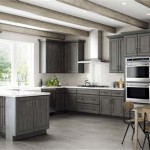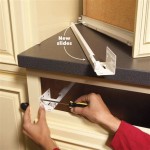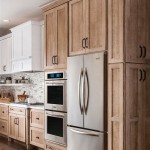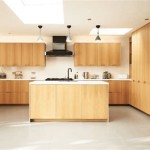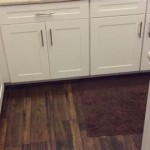Do You Lay Flooring Under Kitchen Cabinets?
When planning a kitchen remodel, one of the crucial decisions you'll make is whether to lay flooring under your kitchen cabinets. This choice impacts the overall look, functionality, and value of your kitchen. To help you make an informed decision, let's explore the essential aspects of this topic.
Benefits of Laying Flooring Under Cabinets
1. Seamless Appearance: A continuous flooring surface from the entryway to under the cabinets creates a visually cohesive and spacious effect. It eliminates the awkward transition between different flooring materials, making the kitchen look more polished and finished.
2. Moisture Protection: Kitchens are prone to spills, leaks, and humidity. A flooring layer underneath the cabinets helps protect the subfloor and cabinet base from water damage. In the event of a spill, the flooring can be easily cleaned or replaced if necessary, preventing costly repairs.
3. Reduced Noise: Flooring under cabinets acts as a sound barrier, reducing the noise of dishes and cookware clattering on the bare floor. It also helps dampen the sound of footsteps, creating a more peaceful and comfortable kitchen environment.
Considerations for Laying Flooring Under Cabinets
1. Cabinet Installation: The thickness of the flooring you choose will impact the height of your cabinets. Ensure that there is sufficient clearance for the cabinets to open and close properly and avoid any obstruction with the countertops.
2. Flooring Type: Not all flooring types are suitable for installation under cabinets. Consider materials like tile, vinyl, laminate, or engineered hardwood that are moisture-resistant and durable enough to withstand the wear and tear of a kitchen environment.
3. Subfloor Preparation: Before laying flooring under cabinets, the subfloor must be inspected and prepared to ensure it is level, dry, and free of any damage. Any unevenness or defects could compromise the installation and affect the longevity of the flooring.
4. Cost: Laying flooring under cabinets involves additional materials and labor costs. Factor in the cost of the flooring, underlayment, and any necessary adjustments to the cabinets for a complete cost estimate.
When Not to Lay Flooring Under Cabinets
In certain situations, it may not be necessary to extend flooring under kitchen cabinets, such as:
1. Existing Flooring in Good Condition: If the existing flooring under the cabinets is in good condition and is not prone to moisture damage, you may opt to leave it intact.
2. Limited Budget: If you are on a tight budget, the cost of extending flooring under cabinets may not be a priority. In this case, focus on other areas that require more urgent attention.
3. Small or Irregularly Shaped Kitchen: In small or irregularly shaped kitchens, extending flooring under cabinets may not provide significant benefits and could result in unnecessary material waste.
Conclusion
The decision of whether to lay flooring under kitchen cabinets depends on your specific kitchen design, needs, and budget. By considering the benefits, considerations, and situations where extending flooring might not be necessary, you can make an informed choice that suits your kitchen and lifestyle. Remember to consult a professional flooring installer for expert advice and ensure a proper installation.
Do You Install Floating Floor Under Cabinets Wood Flooring

Do You Install Floating Floor Under Cabinets Wood Flooring

Do You Install Floating Floor Under Cabinets Wood Flooring

Do You Install Floating Floor Under Cabinets Wood Flooring

Should You Install Tile Floor Before Or After Cabinets

Do You Install Flooring Before Cabinets Best Practices Reallyfloors America S Est Hardwood

What Is A Floating Floor Diamond Kitchen And Bath

Can You Replace Kitchen Flooring Without Removing Cabinets

Laminate Flooring In Kitchens Do It Yourself Installation

Do You Install Floating Floor Under Cabinets Wood Flooring
Related Posts


